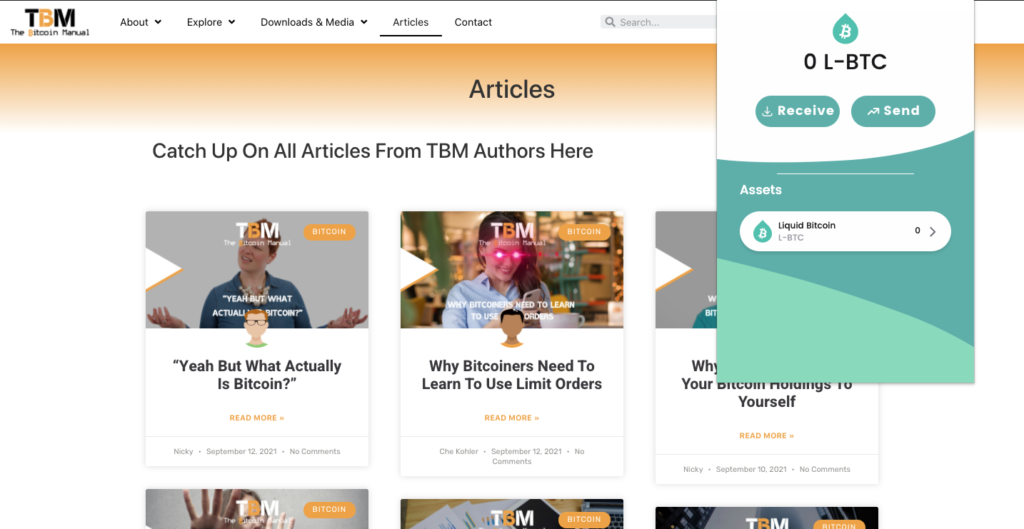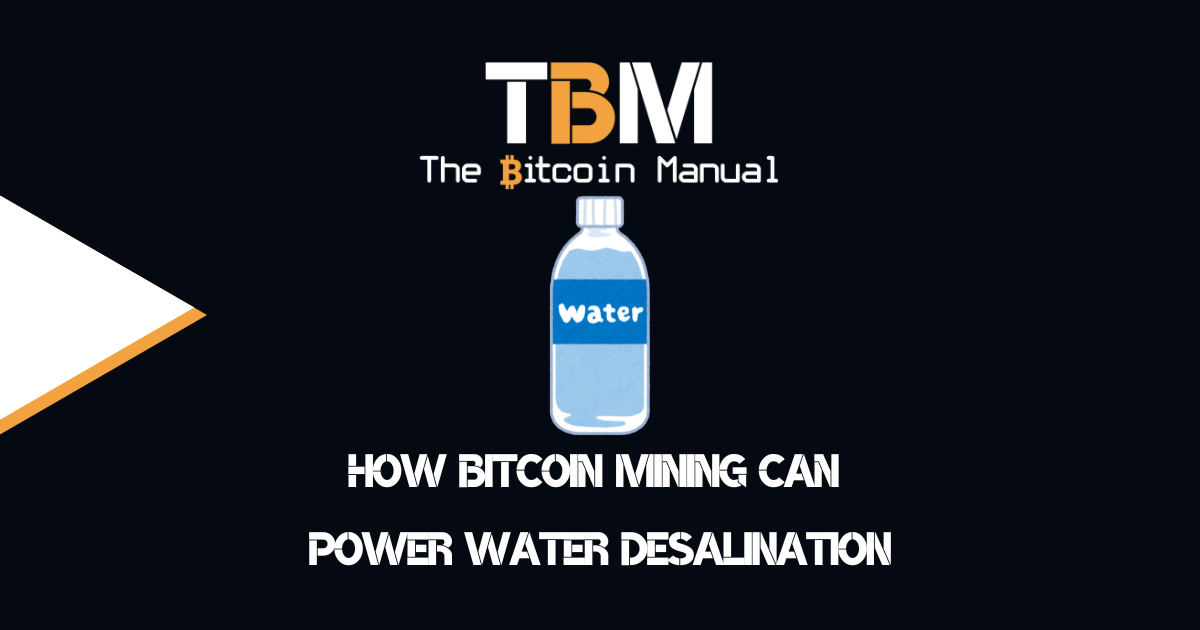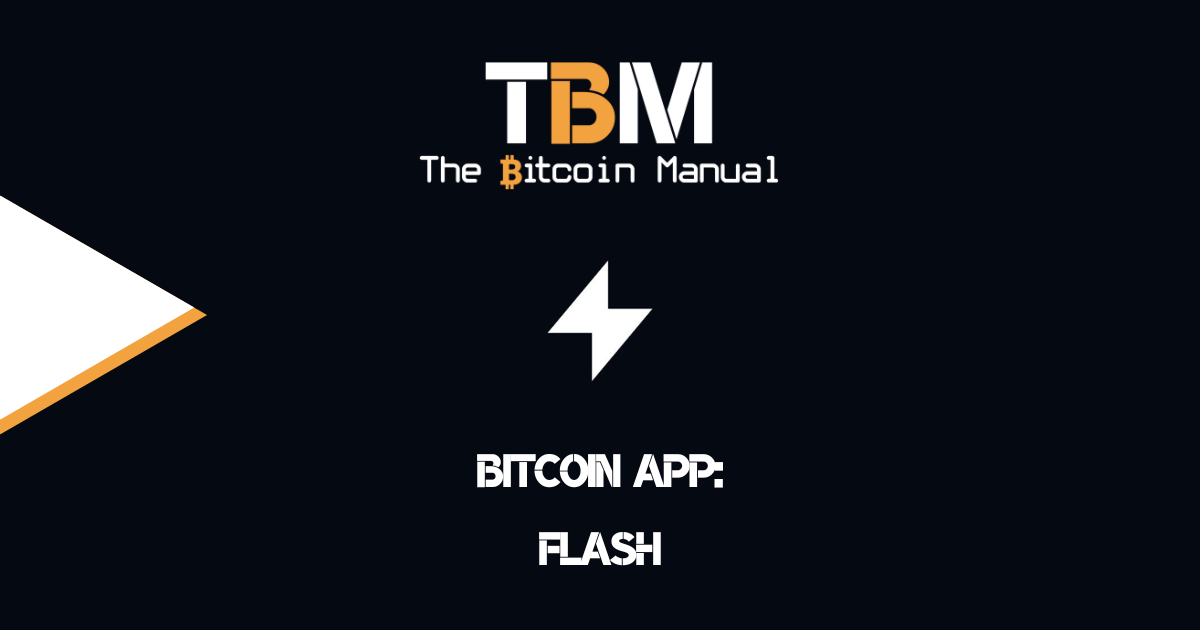As Bitcoiners, we don’t give other chains any credit due to their apparent failings and misrepresentations. Still, if I were to anger the plebs, I would have to admit that Ethereum has done a great job pioneering the idea of web 3.0. The ability to interact with websites and applications with a native wallet within your browser is the cornerstone of Etheruems’ popularity and is something that Bitcoin has been lacking.
I wouldn’t say dapps and DEX’s are a focal point of the Bitcoin ecosystem right now, so, understandably, development on this front is a bit quiet as most resources in the software space are focusing on layer two solutions like the Liquid and Lightning Network, which are still in their formative years.
UX tends to take a back seat when it comes to Bitcoin, and that’s okay for now; as more open source code is created for Bitcoin, it becomes easier to develop applications that leverage the network. Once the bulk of the technical heavy lifting is out of the way, projects can start focusing on onboarding and improved user experience.
I know it sounds like I am a Bitcoin apologist, but I am no coder, so not much I can do to push forward application development in the space other than trying out these tools and provide feedback.
I’ve already spoken about Joule, the browser extension for the Lightning Network, and now it looks like we’ve got one for the Liquid Network, too, in the form of Marina.
What is Marina?
Marina is a browser extension designed to make it easier to access the Liquid network as an application and as an end-user, which in theory should foster even adoption of the network. It enables users to easily send and receive Liquid assets such as Liquid Bitcoin (L-BTC) and Tether USDt. Web developers can benefit from Marina integration as a plug-and-play solution to integrate Liquid Network into their browser applications.
If you’ve played around with the likes of Ethereum, you can compare the service to the likes of Metamask. If you haven’t ventured into Ethereum, then Marina is a web wallet you can install in your browser. So instead of having to open your wallet to do transactions, the browser can prompt your web wallet, making transactions easier to conduct with one click.
Marina functionality includes:
- Generate an HD wallet with blinding keys
- Restore from mnemonic seed
- Receive and send any Liquid asset
- Connect your browser to the Liquid Network
- Share specific addresses only with websites you trust
- Auto-fill transactions and popup confirmation for signature
- Pay transactions fees with Tether USDt
Where can I use Marina?
Marina can be used on Liquid Network supported exchanges like SideShiftAI and Liquiditi.io, which can automatically fill the address fields and trigger the user to review and confirm transactions to make trades.
Furthermore, interactions between Marina and non-custodial exchange protocols such as TDex can enable users to perform non-custodial atomic swaps directly from their browser.
The Liquid Network doesn’t have much going by applications yet, but we see it increase. There are now NFT marketplaces like raretoshi and games like Infinite fleet using the chain, so a web wallet like this could start to come in handy as the ecosystem grows.
Keeping your funds safe.
Now convenience is always welcome in the Bitcoin space, but it should never come at the expense of security and safety. I am personally not a fan of web wallets because I don’t want to keep money in something that’s consistently online and accepting data from a range of sources as we browse god knows what on the internet.
Remember, this software is still new, so always be cautious with how you use it. Don’t keep too much of your L-BTC or Liquid-based assets in these wallets if you can help it and instead transfer excess funds to another Liquid wallet. I mean, it costs a few 100 sats to make a Liquid Network transaction, so seriously, do you have an excuse not to play it safe?
Adding Marina support to your application.
The Vulpem Ventures team, behind the Marina wallet, have made the code open source and are inviting application developers to try it out. Web developers who want to integrate Liquid Network can rely on the injected APIs offered by the Marina Web Provider to fill inputs with Liquid addresses automatically or to prompt a confirmation to make transactions.
More About Marina.
Giving Marina a test run.
Marina has a pretty simple UX that anyone who has used a web wallet would be familiar with, and if not, you’ll pick it up pretty fast. You can either restore a Liquid Wallet or generate a new one. I would always recommend generating a new one and keeping your Liquid balances separate, for safety and good housekeeping, of course.

You can also set a password on your web wallet, so you have a little added security if someone has access to your device. While the look is sleek, and I do like the concept, this will probably be one of those white elephant browser extensions until we have a network of apps that would make using your Green or Jade wallet a painful process to pull out to conduct a transaction.
While it may save me a few clicks, I still wouldn’t be using this if I set up my contracts on HODLHODL, but I see its merit. As play to earn gaming starts to take off, I think this extension will be a great addition to the ecosystem for blockchain games leveraging liquid.





One Response
Great find here on the L-BTC wallet. Always bothered me that there wasn’t something like Metamask for Bitcoin but when you’re building and securing the hardest form of money going, it’s understandable! Well worth a shot to play around with a few sats that you don’t mind keeping online. I might leave it a little bit until it becomes more established but the integration with gaming or other things will be a promising development.